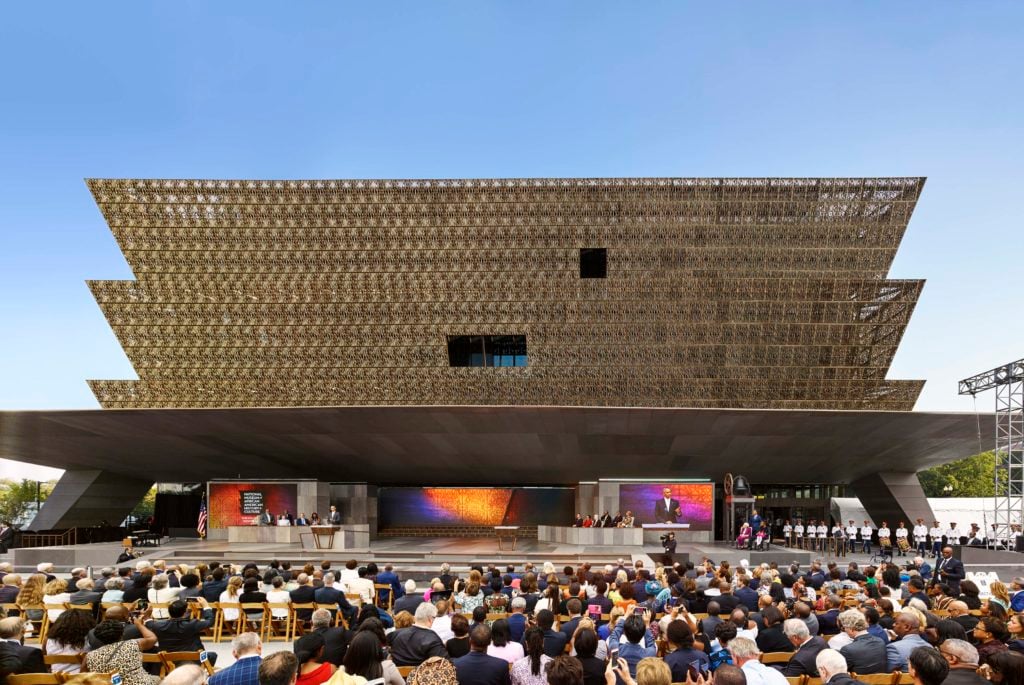Politics
The National Museum of African American History and Culture Has Released a New Portal to Help Americans Have Conversations About Race
Talking About Race was rushed out in light of nationwide protests.

Talking About Race was rushed out in light of nationwide protests.

Artnet News

Spurred on by a rash of nationwide protests following the police killings of George Floyd in Minneapolis and Breonna Taylor in Louisville, the National Museum of African American History and Culture in Washington, DC, has released a new online portal to facilitate conversations about race and racism in America.
The project, titled Talking About Race, collects more than 100 multimedia tools, including videos, scholarly articles, and exercises to help educators, parents, and others develop the language to have productive conversations about “one of the nation’s most challenging topics,” according to a press release.
“We hope that people will use this site to become more comfortable about engaging in honest dialogue and self-reflection,” Spencer Crew, NMAAHC’s interim director, said in a statement.
Talking About Race, which was in gestation before protests broke out in scores of cities across the US, draws upon decades of collective research conducted by the museum’s education staff. It incorporates insights gleaned from historians, psychologists, and activists including Bishop Desmond Tutu, the feminist writer Audre Lord, and Ibram X. Kendi, the author of How to Be an Antiracist, among others.
The project, which is supported financially by the Atlantic Philanthropies, includes resources on the historical foundations of race, the ideology of whiteness, the importance of self-care, and how system of oppression are built, among other topics.
The Smithsonian Institution’s secretary, Lonnie Bunch, who was formerly the director of NMAAHC, issued a statement on March 31 to express the Smithsonian’s “deepest sympathy to the families and communities” of Floyd, Taylor, “and the far too many preceding them whose needless deaths were brought about by unjustified violence.”
“Will we heed the call of courageous figures throughout history who spoke out against slavery, marched on for voting rights, and sat in for basic equality?”, the statement continues. “Will we challenge the nation to live up to its founding ideals? In the memory of those taken from us and for the good of the country, I hope that we do.”